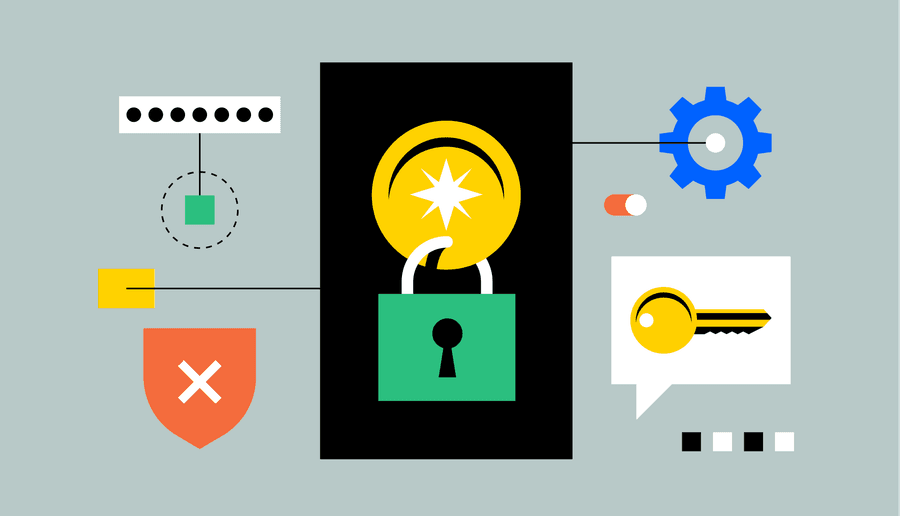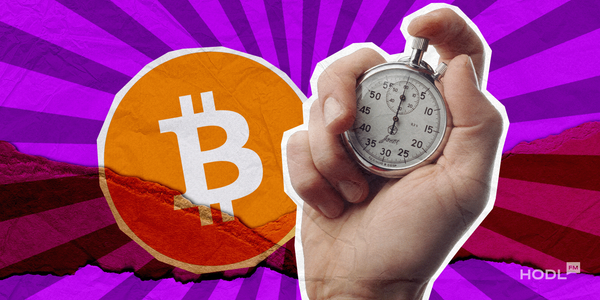2024 got us all a bit concerned about safety when it comes to crypto, with all the bad stuff going on, that is the rising number of scammers, ways to hack blockchain and trick smart contracts becoming more complex, and many other things we don’t like to see on the news. In those circumstances, it wouldn’t be much of a surprise if the demand for crypto dropped, which would mean lower exchange prices and, eventually, loss of profit. However, despite the recent incidences, the predictions are that things are not going to be hopeless in 2025.
Why is it important to secure your crypto?
Despite the fact that DeFi is desperately trying to take measures to protect the system from any breach that would cause users to lose their money, which has been quite successful, there’s something that all of us can do to contribute to the safety of our finance when it comes to crypto. Building awareness of the ways you can get ripped off of your tokens or scammed in any other way is super important. Of course we have to trust the system, but we should also be in control of our of data safety.
What are the possible attack vectors we should be aware of?
There is a myriad of ways your crypto can be attacked, with the most common being:
- hacking – straightforward breach into the system;
- phishing – websites or files that steal your data to gain unauthorized access to whatever they want;
- SIM jacking – getting access to your phone, which can be used to authorize a log in;
- shams – imitations of a trustworthy source that you end up giving your personal data;
- scams – tricking you into doing something that is not safe for you.
Some of the ways that you can lose your crypto to that do not need to be explained are:
- extortion;
- friends turning on friends;
- spoof friends;
- good ol’ fashioned human error.
Although that might not have been a lot to wrap your head around, ‘cause scams are no different in any field, let’s look further at some specific examples of how that might happen.
What are some examples of fraud for us to recognize?
Fake websites. Fake website is basically a sham that pretends to be a trusted website. You may receive a link through an email that looks like a newsletter or an update from a site you’ve been using, and then – boom! – you got your log in and password stolen once you entered the details.
Spoofed calls from imposters posing as trusted institutions. Not too popular, but still possible. You may receive a call from any company that may or may not seem to be connected with the service they are trying to breach, asking for account verification details or anything else. Remember that 99.9% of trustworthy sources do not make those calls. Tell them to get lost once they try to fool you around, that’s the best option.
Social media. Besides being a great source of insecurity and fear of missing out, social media is also a minefield of spam bots and malicious posers. Remember that you should not trust any accounts with your personal details, or visit any websites, no matter how tempting that is.
Users can’t flag fake accounts fast enough. You should remember that, although a user can report a page as a scam after they have fallen victim of the cybercrime, social media will not immediately block the page and will probably wait for others to report it, too. This means that a scammer’s account may last for some time, and that time will be enough to scam several people.
What are some types of hacker attacks?
In general, anything can be fake or malicious. Literally anything. Some examples are;
- Malicious transactions
- Malicious messages, especially those signed with eth_sign
- Honeypot NFTs
- Fake tokens
- Fake sites
- Malicious smart contracts
- Poisoning attacks
You should be extra careful will all of those things, as all of those can get your personal data and use it to either simply steal your crypto or breach the system to steal your AND others’ crypto. If you are not sure about a transaction, a message, or a token, do not open, read, or use it. The chances are, it is a scam and we don’t want you to learn that the hard way.
What are the eight ways to protect your cryptocurrency?
Do not click on suspicious or strange links!This is the key to any good online hygiene practice. Whatever feels weird, uncomfortable, unexpected, oddly written, way too urgent or way too tempting – ignore it at all costs!
Protect your seed phraseSome platforms recommend that seed phrase be stored on a piece of paper, which, knowing how that sounds, is still a really good piece of advice. Your piece of paper cannot be hacked remotely and cannot be subject to a phishing attack. This in combination with other techniques will increase your safety.
Enable 2-factor authentication (2FA)2FA is a good way to protect your data if hackers get access to one modality that can be used to enter your account. It is unlikely that they will be able to use both. If it is annoying and takes time for you, imagine how hard it makes it for hackers!
Generate strong passwordsWith the high number of software available that can guess passwords, having a long, complex and hard-to-guess password is a must. Of course, it will not make your account impossible to hack, but it will definitely take a lot more time, which sometimes is the key to take action in time to prevent the breach.
Maintain plausible deniabilityThis goes with ignoring suspicious links. Some accounts may offer you a quick and easy way to make money, but remember there is nothing quick and easy in this life. Make sure you do not fall for that.
Use cold storageCold storage wallet is the best place to keep crypto if you are not ready to lose it to hackers. The fact that cold storage keeps your tokens away from the Internet makes it impossible to hack it remotely. Even if you click on that suspicious link or someone will accidentally know your password, they will have nowhere to use that data.
Test everythingTesting gets you familiarized with the system, which will help you identify any suspicious activity in the future and help avoid them. Besides, after having tested a platform or a code, you can be sure that it is e and working.
Level up. Help the ecosystemLearn yourself and help others learn as well. The wall is unbreakable if every brick in it is strong and glued together well. Stay alert and oriented, be a strong brick!
Despite the attacks being more frequent due to the demand for crypto being on the rise, most of the trusted platforms are very safe if you follow these simple rules above. Do not let scammers win, protect yourself and keep hackers away from your blockchain wallet!



